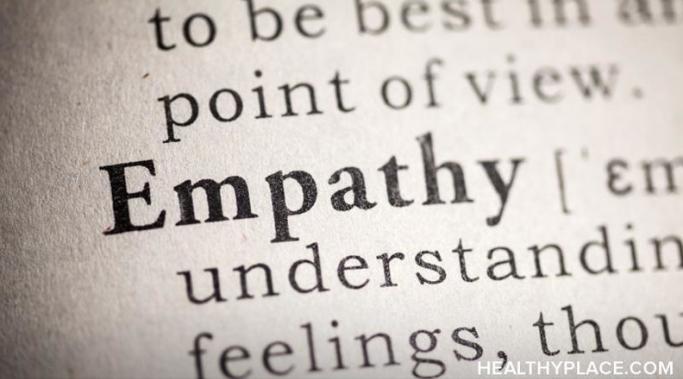Bipolar disorder is a scary illness, but sometimes even scarier is the idea of treatment. Logically, going to the doctor, getting a diagnosis and getting help doesn’t sound scary, but if you’re the one faced with psychiatrists, personal, probing questions, destroying what you know and treatments that might make you feel worse before you feel better, you might find the concept daunting.
But what do you do if you’re a loved one of a person with bipolar (or another mental illness) who is refusing treatment?
Impact of Bipolar
When I speak to kids about my experience with bipolar disorder, really, I have a series of failures to explain. I tell them how treatment after treatment failed. I talk about drug failures, the failure of the vagus nerve stimulator and the failure of electroconvulsive therapy. I lot of my sentences have the word, “unfortunately,” in them.
And after one of my presentations last week, one person asked what I would say to someone who was going through a similar experience. I thought that was a very important question.
So here’s what I would say to someone who’s experiencing treatment failure.
A reader recently contacted me and asked me about psychomotor agitation. Psychomotor agitation is actually a symptom of bipolar hypomania and bipolar mania (and depression) and yet few people know what this means. In fact, according to this study, it is poorly defined and measured even within the medical community. Psychomotor agitation is often translated into “restlessness,” which doesn’t seem overly descriptive to me.
So here’s my take on psychomotor agitation: how it feels and what we know about it.
A get questions from all sorts of family members and friends of people with mental illnesses and, luckily, many of these people want to help. The trouble is people feel intimidated by a diagnosis of mental illness. They don’t even know where to start to help. This is completely normal. A probable lifetime diagnosis is enough to make anyone feel powerless.
But you are not powerless. If you love someone with a mental illness, there are many things you can do to help.
O Romeo, Romeo! wherefore art thou Romeo? Deny thy father and refuse thy name; Or, if thou wilt not, be but sworn my love, And I'll no longer be a Capulet.
There’s a piece of knowledge stuck in a cranny of my mind. Shakespeare. An important guy who wrote some important works, to be sure, and we all study him, for good reason. But how many of us use Shakespeare in our lives? Not too many, I’d wager.
And yet I don’t recall a single class being taught on mental illness. Not one reference to the signs of suicide despite it being the end to Romeo and Juliet, the same play stuck in my mind's crannies. Not one reference to mental illness in my education. And one-in-four people could use that later in their lives.
Bipolar disorder can be a very debilitating illness, to the point where many people have hampered lives because of it. People may find that they can’t have families or jobs because of their disabling bipolar disorder.
And there is nothing wrong with these people. These people are just learning to live a different kind of life because life, unfairly, besought them with a severe mental illness.
But one of the problems these people often have is finding meaning in life. If you see everyone around you with a job or a family or other things your mental illness stops you from having, how do you handle it? How do you find meaning with a severe case of bipolar disorder?
We all have parts of our lives that we wish were different. One might wish her boyfriend hadn’t cheated on her. One might wish that his boss wasn’t so micromanaging. One might wish that she wasn’t bipolar. And so on. One might feel that these situations are unfair.
And sometimes when experiences arise around these situations, we react, not to the situation itself, but to how we wish the situation were and this gets in the way of making healthy choices.
It’s an interesting question, isn’t it? You have a life-altering illness that affects the very way your brain works. Do you actually have to tell people that? Do you have to tell people you have bipolar disorder?
Well, like with everything in life, it depends.
It’s devastating to get a diagnosis of bipolar disorder or another mental illness. It means many things to many people, but I know for me, it meant a lifetime condition and a lifetime of treatment. It honestly felt like a death sentence.
But a bipolar diagnosis doesn’t just affect the person with bipolar disorder. A bipolar diagnosis can affect their family and friends, especially if the person with bipolar disorder is younger. It’s completely understandable for a parent to wonder if bipolar disorder is a death sentence. It’s completely understandable for a parent to wonder if his or her child is going to be okay.
Recently I was contacted by someone who was unfortunately going through a divorce. He felt that his spouse left him because he was bipolar. He asked me the question that so many people with a mental illness have asked themselves: I’m bipolar – will anyone ever love me?
Well, I can’t tell the future, but I do know a few things about love.

![MP900390526[1]](/sites/default/files/styles/blog_listing/public/uploads/2013/05/MP9003905261.jpg?itok=8oVaR4Fn)
![MP900387479[1]](/sites/default/files/styles/blog_listing/public/uploads/2013/05/MP9003874791.jpg?itok=H3noVYZU)




![MP900177900[1]](/sites/default/files/styles/blog_listing/public/uploads/2013/03/MP9001779001.jpg?itok=4-Nio57P)
![MP900178828[1]](/sites/default/files/styles/blog_listing/public/uploads/2013/03/MP9001788281.jpg?itok=xe_PjdU_)
